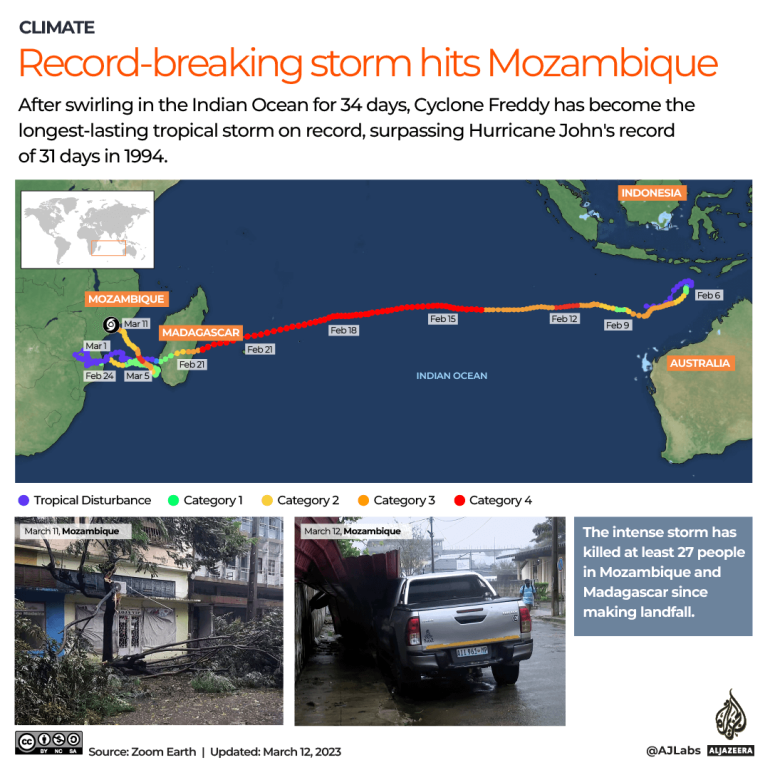Freddy, one of the strongest storms ever recorded in the southern hemisphere, ravages Southern Africa.
Freddy is one of the strongest storms ever recorded in the southern hemisphere and could be the longest-lasting tropical cyclone, according to the World Meteorological Organization.
It pummelled central Mozambique on Saturday, ripping roofs off buildings and bringing widespread flooding around the port of Quelimane, before moving inland towards Malawi with torrential rains that caused landslides.
Police in Malawi said 11 people died in areas surrounding the southern city of Blantyre, where heavy rains triggered flooding.
He said rescue teams were looking for people in Chilobwe and Ndirande, two of the worst-affected townships in Blantyre, where it was still raining on Monday and many residents were without power.

Four dead in Mozambique
At least four people died in Mozambique, authorities said, as an assessment of the damage was under way.
The full extent of the damage and loss of life in Mozambique in particular is not yet clear, as the power supply and phone signals were cut off in some parts of the affected area.
Mozambique has seen more than a year’s worth of rainfall in the past four weeks, prompting concern that rivers could burst their banks and cause wide-scale flooding.
Malawi has been battling the deadliest cholera outbreak in its history, and UN agencies have warned the situation could worsen because of heavy rains caused by Freddy.
Scientists say climate change is making tropical storms stronger, as oceans absorb heat from greenhouse gas emissions and when warm seawater evaporates heat energy is transferred to the atmosphere.
